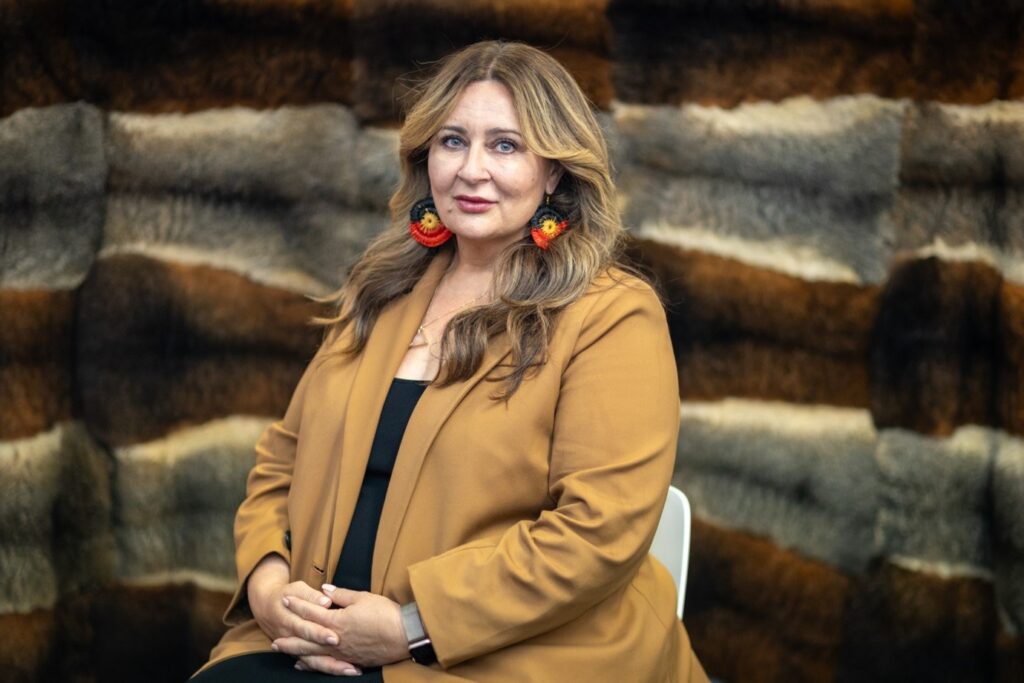Ashlee Donohue knows what it feels like to be in a domestic violence relationship. She knows what it feels like when somebody that you love harms you physically, mentally and emotionally.
“It’s important to understand what things feel like,” Donohue tells Women’s Agenda. “If you don’t know what it feels like, then you can’t heal it.”
“That’s the basis of it really. There’s a lot of conversations happening, and there’s a lot of solutions being made by people that don’t know what it feels like. And that’s why it’s not working.”
A leading advocate for domestic and family violence, Donohue is a proud Aboriginal woman from the Dunghutti nation, born and raised in Kempsey, NSW. Her expertise lies specifically surrounding anti-violence, anti-racism and Aboriginal women, as she’s currently the CEO of Mudgin-Gal Aboriginal Women’s Centre– the only centre of its kind, 100 per cent run by and for Aboriginal women in metropolitan Sydney.
Documenting her personal journey, Donohue has published her memoir this year with Magabala Books, titled “Because I Love Him”– a must-read for those who can relate as well as those who still need to learn about what domestic violence feels like, from someone with lived experience.
“The thing is… my story, it’s hard hitting, it’s ugly, it’s sad, it’s infuriating, it’s dangerous, it’s a spiral, because that’s what domestic violence is,” Donohue says. “That’s what being in a domestic violence relationship is. There’s no sugarcoating it.”
And while domestic violence alone is already devastating, Donohue notes another layer to the crisis for Aboriginal women in Australia: racism.
The reason Donohue advocates so strongly for Aboriginal women, she says, “is not only that Aboriginal women are facing violence from perpetrators” but they’re also “facing violence from systems– the systems that are put in place to keep women safe are failing Aboriginal women dismally”.
“The police fail Aboriginal women at an alarming rate. Hospitals fail Aboriginal women at an alarming rate. The systems that are in place don’t see Aboriginal women as equal, and so it takes longer for the police to go to a house where they know that there’s violence.”
“Aboriginal women are losing their babies at a higher rate than any other nationality in this country. The incarcerated at a higher rate than any other nationality in this country. And Aboriginal women make up less than 2 per cent of this country– make that make sense,” Donohue says.
The Mudgin-Gal Aboriginal Women’s Centre, where Donohue is the CEO, is directly addressing this crisis, and yet, hasn’t received any government funding for the 32 years it’s been open. Instead, the centre– which supports some of the most disadvantaged women in the country– relies heavily on philanthropic money and donations
“The government wants to end violence in 10 years, and they won’t even fund an organisation that’s been in service for 32 years, specifically for Aboriginal women, when Aboriginal women sit in the highest percentage of everything violent in this country,” Donohue says of the incredibly frustrating situation.
“The government is failing Aboriginal women at an alarming rate.”
“Any Aboriginal and or Torres Strait Islander woman who walks through our doors, we do our very best to advocate and work with and support,” she says.
Most of the women that work in this safe haven have their own lived experience of domestic violence as well, and Donohue says this provides a critical level of understanding and compassion for those seeking escape from violence.
“Your experience far outweighs any degree,” she says, noting that the women working in the centre, deeply understand “the shame and the guilt that comes with speaking out about domestic violence and sexual assault”.
“What a lot of people don’t understand is that when you leave that domestic violence relationship, the love doesn’t leave automatically.”
“If there’s one message I can get out there, it’s that violence isn’t love.”
“However, when we’re in these relationships, we love these people that are hurting us,” Donohue explains about this nuanced reality, adding that “when you leave, it’s like any addiction– there’s a withdrawal stage.”
Donohue understands this experience, as do many women with lived experience of domestic violence.
And for those who don’t carry this burden, Donohue encourages them to listen to survivors and act on what survivors tell them they need.
“We have to learn to listen and listen to learn. That’s what we have to do.”
To mark NAIDOC Week 2024, Women’s Agenda has produced a special edition eMagazine in honour and celebration of incredible First Nations women trailblazing across different sectors in healthcare. Thanks to Charles Sturt University’s First Nations Pathways for its support bringing this eMagazine to life.

